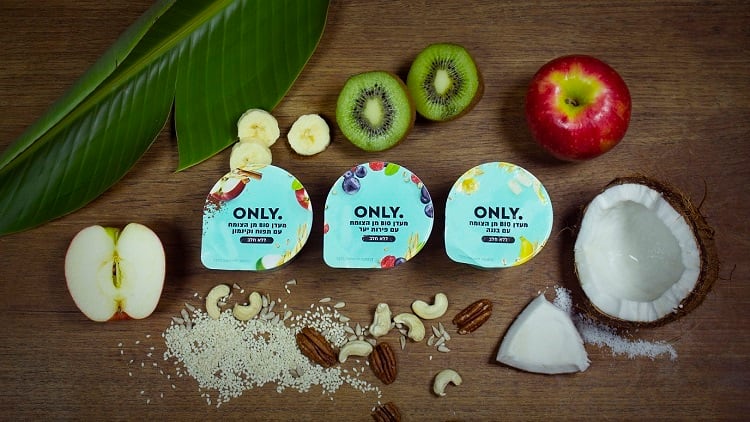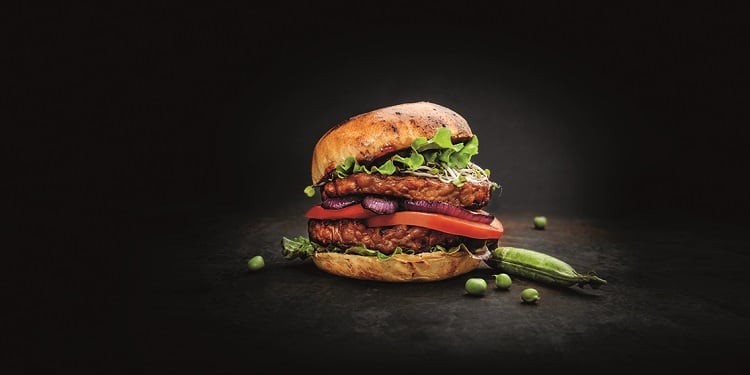The latest Mintel Global New Products Database revealed that, in 2018, the UK was the country with the highest number of new vegan products launched, overtaking Germany which had previously led the vegan charge.
This reflects an acceleration of vegan innovation in the UK. Mintel revealed that 16% of new products launched in 2018 had a vegan or no animal ingredients claim. This is up from just 8% in 2015.
Growth in the UK has been propelled by an increase in the number of consumers looking for animal-free options, which are viewed as more ethical and healthier.
According to the vegan society, demand for meat-free food increased by 987% in 2017 while shopper insight work commissioned by UK retailer Waitrose found one in three Brits have stopped or reduced their meat consumption.
Social media has helped spread the word, particularly among younger consumers for whom veganism tells a story about their identity and worldview.
Importantly, supermarkets have identified the vegan trend as something they can capitalise on, resulting in an up-tick in private label innovation that has created a positive feedback loop helping to fuel further demand, Mintel analyst Edward Bergen suggested.
“Supermarkets have realised there is a boom, consumers are looking for more options, more vegan options. The fact that supermarkets have picked it up, given it space on shelf, promoted it [is driving excitement]. The vegan trend is now rolling.”
Nevertheless, this innovation drive does not come without its risks, as can be seen in the German market, where vegan NPD has slowed down. Mintel describes Germany as a “mature and saturated” market. The total percentage share of food launches classified as vegan fell from 15% in 2017 to 13% in 2018.
Could we could witness a similar slowdown in the UK?
Bergen believes this may be a concern: “For branded companies specifically it is going to get more and more challenging unless they can find a niche. In the past, the supermarkets would have carried brands, which were driving sales, with a few vegan options. Now they have a really strong private label range with multiple launches and continuous delisting and re-launching. Seasonal periods will see full changes of ranges… Without a doubt brands especially are going to struggle more and more to get the shelf space that they want and cold have got easily two years ago with a high quality vegan product.”
As the UK market becomes increasingly crowded and competitive for people eyeing a slice of the vegan pie, how can vegan food makers continue to drive the category and avoid saturation point?
Culinary inspiration

An important source of inspiration for innovation in vegan retail options is the food service and hospitality sector.
In the out-of-home space, chefs and restaurants have challenged themselves to replicate the satisfaction levels you would get from a meal including meat or dairy.
“Consumers have really taken to that because they have seen that there are exciting veg options on the plate,” Bergen told FoodNavigator.
Retailers have responded by moving their vegan options out of “the back corner of the supermarket” and using culinary-inspired flavours and cooking techniques to make these products a “go to destination”, the industry pundit suggested. “They are looking to explore cuisines, different options. The vegan trend has helped make veg more exciting.”
In ranges like Tesco’s Wicked Kitchen or Marks and Spencer’s plant-based range ‘vegan’ is not necessarily the headline.
Make veg the star
Indeed, rather than presenting plant-based alternatives to meat and dairy products, Bergen believes that the trend will see innovation moving vegetables into the centre of the plate.
“Alternatives are all well and good: fish alternatives, meat alternatives. But I think now cuisine-based dishes that only use vegetables in different and interesting ways [will shape the market]… That is where we are going to see more innovation in the future: using really great vegetable ingredients, aubergines, mushrooms, umami flavours… Raising the status of certain vegetables and making them exciting.”

Rather than providing full ready meals, Bergen believes it will be important to deliver products that help consumers make their own “really exciting” vegan meals at home. In particular, he points to innovation in the freezer aisle with the introduction of things like frozen grilled aubergine, asparagus or baby corn.
“More ranges of the components will be part of the vegan trend growth,” he predicted.
“We are going to get to a future where vegan isn’t talked about as being for a select group of people. Whether its dropped or it just becomes a claim on the back of the pack, it will just be a dish that is made out of vegetables. Already, retailers are using phrases ‘plant power’ and ‘plant-based’ and dropping the vegan claim a little.”
Vegan comfort food
While vegan food currently benefits from a perceived health halo (rightly or wrongly), Bergen suggested that there is an opportunity to make “vegan comfort food” that makes no pretence at being good for you.
“There is something in comfort food. We are seeing in the US, where vegan ranges are exploring it quite a lot. Pulled jackfruit in sliders, heavy BBQ sauce in a bun. Trying to replicate what is happening in the meat category but only using vegetable ingredients. You are seeing deep fried products appearing more. We are seeing quite a lot of Asian fusion appearing using vegan ingredients. It is fusing with this American style comfort food,” he noted.
But for this to be effective, Bergen believes that vegan food makers must be completely transparent about whether their products are healthy or not. Already, we have seen the beginnings of a backlash against vegan products marketed as healthy but actually high in fat, salt or sugar. In an era of unparalleled levels of information reaching consumers, honesty is the best policy.
“Health is something to think about. It’s not necessarily that everything needs to be healthy, it doesn’t. It is about being transparent saying this range, with these ingredients, is healthy for you for these reasons.
“There is an opportunity to be more transparent as a brand on the health and wellness aspect. If consumers are looking for a great alternative to meat, dairy or eggs, you can say ‘this has got this protein in it, this has got vitamin C in it, this has got omega 3 in it. We have used certain ingredients to give you those.
“If you are using veg that has great nutritional content tell the consumer about it. But don’t lie and imply something is healthy when it’s not.”




